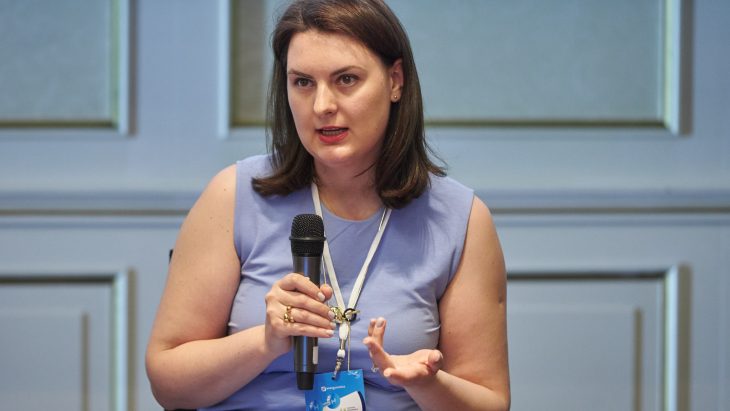Fuel suppliers in Romania will have to ensure from April 2025 that at least 0.5% of fuels supplied for consumption or market use are non-biological renewable sources. If they don’t, they are liable to “quite heavy” fines.
“This obligation is not to be neglected because the law also provides for quite high fines. The intensely punitive nature of the law has been noted. Unfortunately, the law does not provide benefits for those who make efforts to enforce it”, said Daniela Goreacii, Project Manager at FEL Romania, at the conference “Hydrogen Project – what is Romania up to”, organised by Energynomics.
The Hydrogen Law sets a number of targets for the integration of hydrogen from renewable and low-carbon sources into the industry and transport sectors.
The National Hydrogen Strategy has been in the environmental assessment procedure at the Ministry of Environment, Water and Forests (MMAP) since February 2024.
According to Goreacii, Romania should not wait to have this strategy approved first and only then draft implementing legislation, but “it might be useful to do an exercise beforehand”.
By 2030, the share of non-biological renewable fuels must reach at least 5% of the energy content of all fuels supplied for consumption or use on the Romanian market.
At the same time, by 2030, industrial hydrogen consumers will have to ensure that a minimum of 50% of their fuel use is from non-biological renewable sources or low carbon hydrogen and a minimum of 42% from non-biological renewable resources.
From 2035, the share will rise to 75%.
Further challenges arise from the fact that targets for the integration of hydrogen in industry and transport may be difficult to achieve, while the goal of regulation is not attainable only by imposing obligations without providing incentives/facilities for pilot projects.
DOWNLOAD THE PRESENTATION OF DANIELA GOREACII
Moreover, the act does not create the necessary legislative framework for the production/transport, storage and supply of hydrogen for existing projects in Romania. In addition, the law is too broadly applicable to both transport and industry, and also does not regulate concrete conditions for issuing and trading supply certificates to prove that the hydrogen targets have been met.
The conference “Hydrogen Project – what is Romania up to” was organized by Energynomics with the support of our partners Elektra Renewable Support and Horváth.
On this occasion, the Didactic and Pedagogical Publishing House presented the book “Discussions the Hydrogen Energy Vector”, authored by Ioan Iordache, Dumitru Chisăliță, Hans Marius Shuster, Cristian Călin, and Oana Dumitrean, as part of the collection “Academica energie.”
